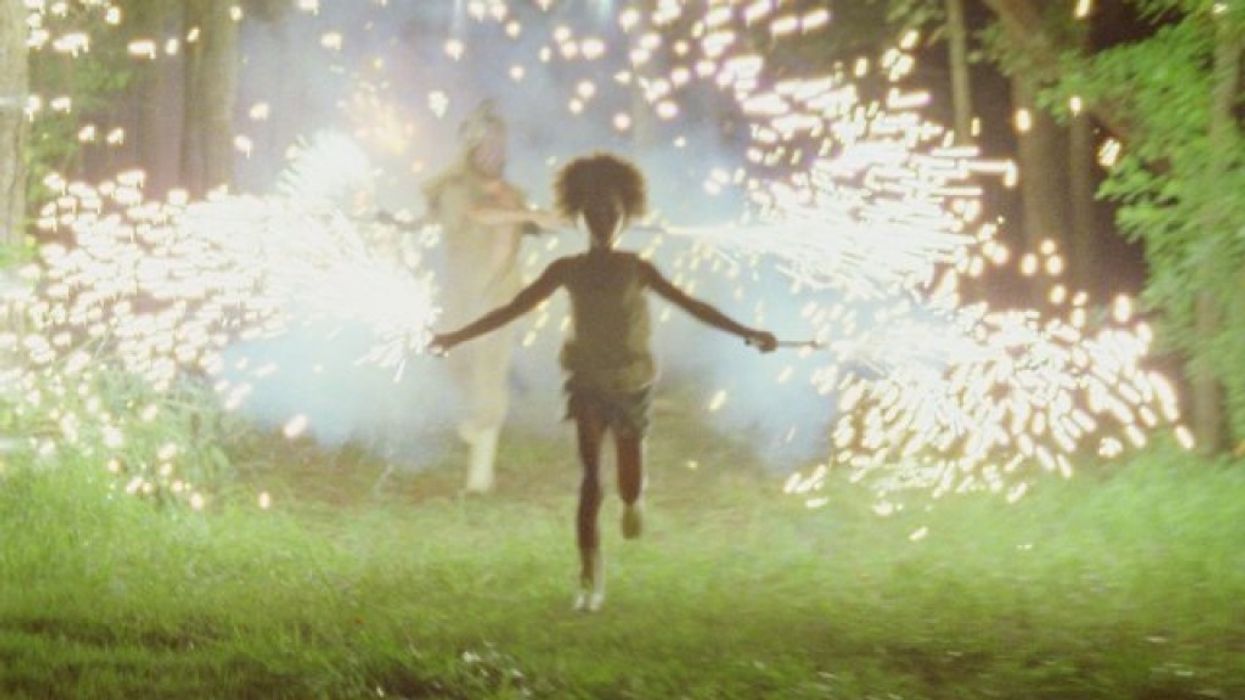Benh Zeitlin and Lucy Alibar Describe the Script's Evolution for Beasts of the Southern Wild

As Sundance and Cannes award-winner Beasts of the Southern Wild grows from festival darling to full-fledged must-see status in its platform rollout across the country, many interviews with first-time feature film director Benh Zeitlin have focused how his creative team managed to film a joyous apocalyptic story off the grid on the water during an oil spill in southern Louisiana with non-actors. Merely getting this film in the can was a miracle. My interest as a writer, however, craves to know more about how Zeitlin and his co-writer Lucy Alibar worked through the adaptation of Alibar's play Juicy and Delicious to create this Beast. Thanks to Edward Douglas at ComingSoon.net, we have some answers, straight from the co-writers themselves.
Setting Guides Story Evolution
Coming off his award-winning short Glory at Sea, Zeitlin wanted to continue to work in the Louisiana bayou and tell a story about a community making a final stand. At the same time, Zeitlin and Alibar (who have known each other since the age of 13) were collaborating on adapting one of Alibar's plays into a short film. Zeitlin noticed several overlaps between his ideas and Alibar's Juicy, which takes place in the North Florida swamps and also featured apocalyptic scenarios:
Zeitlin: The original setting, it had several similarities. It was sort of off the grid, it was out in the woods, it was rural, it was in a Wetlands culture and alligators were part of it. There's a lot of things that connected North Florida off-the-grid Wetlands to South Louisiana off-the-grid Gulf bayou culture, so it made a lot of sense and it all came together. There was just some weird synergy where I just felt like the two things were floating around like this and they just kind of glued together.
Changing Character's Gender and Age Changes Entire Story Perspective
Once the location shifted, Zeitlin and Alibar decided to change the father-son dynamic of the play to a father-daughter relationship. Also, changing the main character's age from 11 years old to 6 years old altered how the writers perceived the fantastical elements of the original story:
Alibar: It sort of became more grounded as it went. I think the play was much more lyrical and much more fantastical and much less attached to real things, and the process of transposing it to Louisiana and taking these Apocalyptic events and attaching them to actual environmental phenomena. When the character was played in the theater, it was a 25-year-old guy playing an 11-year-old boy. It's a much larger step away from reality so actually attaching that character to a little girl who is probably similar to the age Lucy was talking about when she was writing the show, a lot of real elements are going to come in. By the end, we stopped thinking about it as a fantasy film and it became much more a film through the perspective of a 6 year old, when reality and imagination are not necessarily different things or reality is built out of both what's actually happening and what you imagine to be there and you're not making those distinctions. For me now, it certainly has a heightened reality, but it's the heightened reality that exists when you're six.
Writing Non-Actors' Lives and Emotions into the Script
Working with non-actors not only presented a chance for realism on the screen, but also an opportunity for Zeitlin to work closely with his newly found talent and to incorporate elements of their own lives and emotions into the screenplay:
Zeitlin: [T]he way it sort of worked was we did this first very, very quick script based on the play and then me and Lucy collaborated on three or four different story drafts, and then once we felt we had the story, that's when actors got cast and the final draft was this sort of collaborative process of rehearsing scenes, interviewing actors, bringing in elements of their lives to the characters. That last draft was sort of a lot of me in the bakery with Dwight [Henry] while he was making doughnuts rewriting scenes that he brought to the film and his language, and also interviewing Quvenzhané [Wallis] and incorporating what she said. It wasn't total rewrites, it's just sort of taking a lot of poetry of the play and then putting it in the voice of the person playing the role so they can kind of own that text, and just giving the actors room to breathe inside of the text was a process. Basically the last script was that kind of workshop process.
Beasts of the Southern Wild certainly underscores the truly collaborative process necessary to create a film, and not surprisingly that collaboration found its way into the remarkably uplifting story as well.
Take a few moments and read the full interview conducted by Edward Douglas at ComingSoon.net for many more insights into Zeitlin and Alibar's writing process for Beasts.
Have your writing collaborations led your story ideas to evolve into something totally new and unexpected? Let us know in the Comments section.
Haven't seen Beasts of the Southern Wild yet? Check out the platform release schedule to see when the film is coming to your town. Here's the film's trailer:
And here's Court 13's short, Glory at Sea, written and directed by Benh Zeitlin:
Link: Edward Douglas' interview of Benh Zeitlin and Lucy Alibar on ComingSoon.net











